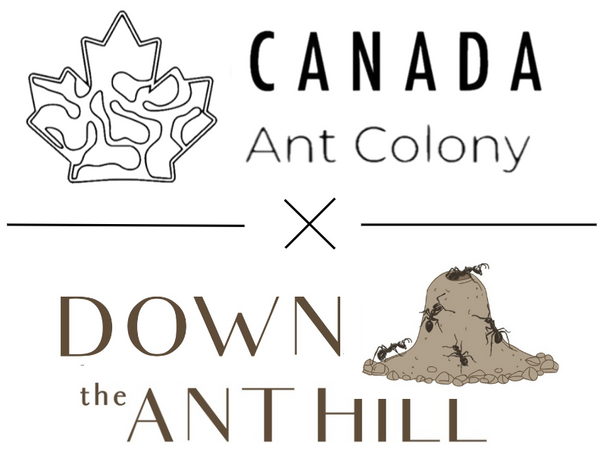FAQ
What temperature should I keep my ants?
Ants enjoy a different range of temperatures, but as a general rule temperatures around 25 degrees seem acceptable for most Canadian ant species
Do I need to hibernate my ants?
Depends. Most Canadian ants, and therefore the ants we sell, require some sort of hibernation period. This can be achieved by putting them in a fridge or garage. We recommend using a fridge, as subzero temperatures will sometimes lead to test tube breakage, as the water expands and contracts. We sell a few exotics species which were introduced to Canadian greenhouses, which do not need hibernation.
As a general rule-- (These apply to Canada, and are different for other areas) Past 6 months, ants will usually begin to die
Aphaenogaster: 3 months
Brachymyrmex: 3 months
Camponotus: 4 months
Crematogaster: 3-4 months
Formica: 3-4 months
Lasius: 4 months
Myrmica: 2-3 months
Temnothorax: 3 months
Tetramorium: Can be kept without hibernation, but does ideally with 3 months
What should I feed my ants?
Ants should be fed some source of liquid sugar and some source of protein.
Sugar can be given in the form of byFormica Sunburst, sugar water, o honey
Protein works best using insects, but "human" protein from meat/fish/egg yolk works as well
Ants do best with a few types of food to encourage variety
Ants should be frequently fed small amounts of food at frequent intervals. However, feedings can become larger with longer intervals in between as the colony grows
When can I move my ants into a formicarium?
As a general rule, you can move your ants in a formicarium if they take up 30% of the formicarium. Yes, even single queens.
However, take note that ants can be kept in test tubes usually for as long as they fill it up, or until the water dries up
What about gel farms?
Gel farms are generally accepted as very detrimental for the ants, and ant colonies cannot be sustained in them
Will the ants escape?
Ants will generally try to escape out of any hole they can fit through as long as they have gotten large enough to forage far outside the colony.
Many methods of anti-escape methods exist in the hobby. In particular, we use fluon, which is one of the best barriers, though it loses efficacy in humid environments
Alternative barriers include vaseline, rubbing alcohol + baby powder, and virgin olive oil. However, most of these will not work on certain species, and overall fluon is by far the best barrier
How do I tell if my queen is fertile?
There is no way to tell if a queen is fertile before she has workers. Some species lay eggs very soon after flying, and other species will overwinter before laying eggs.
